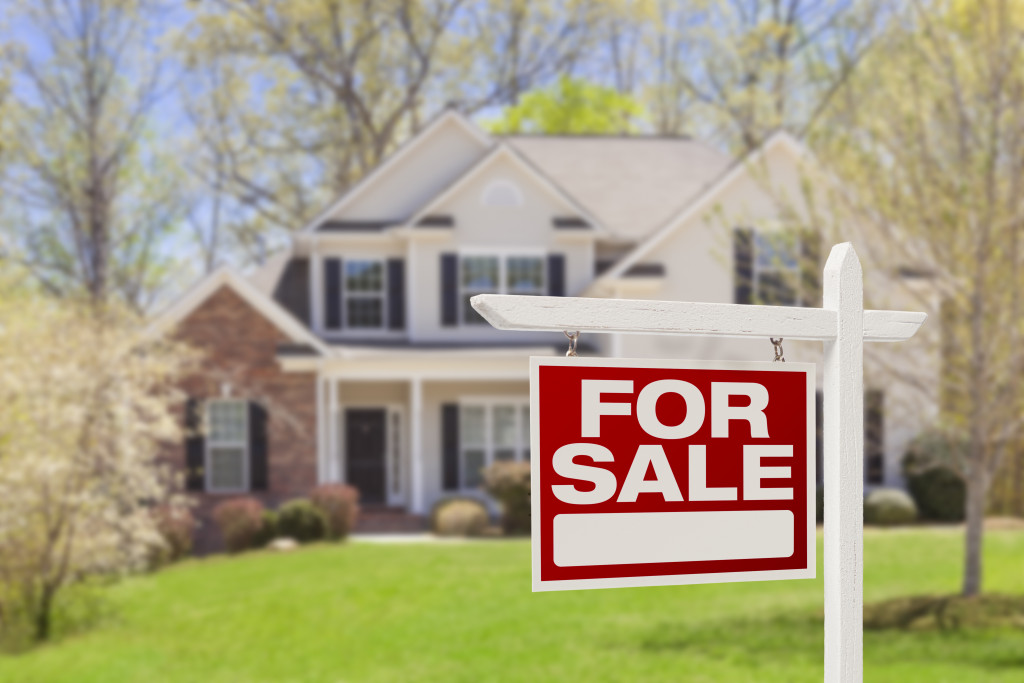- Consider the location preferences you need before looking for a property – factors such as nearby establishments and environmental safety.
- Have a financial plan before committing to purchasing a property – budgeting, mortgage loans, and emergency funds should be considered.
- Research the local real estate market to compare prices and features among different properties.
- Assess the house’s condition before buying it – inspect any potential problems with mold, foundation cracks, water damage, etc.
Buying a house is a significant milestone for many people. It symbolizes stability and security and a source of pride and joy – homeownership is often a primary goal in most individuals’ lives. Owning a home brings many advantages, such as providing shelter and safety, creating financial security, and ultimately becoming an investment opportunity for selling it.
The vast majority of Americans own their own homes; according to data from the U.S. Census Bureau’s 2019 American Community Survey, 65.3% of American households were homeowners in 2019 compared to 34.7% renters, meaning that over 130 million households owned their own homes at the time the survey was taken. These figures show that owning a home is something people aspire towards and are actively working towards achieving throughout their lives.
Buying a home is a massive financial investment that people must prepare for, especially if they take out a mortgage. Before you start hunting for your dream home, it’s essential to have specific requirements in place. Here is a list of things you should have before buying a house:
Location Preference
Buying a dream home does not mean you will focus on the property itself. The neighborhood, environment, and location should be priority factors in the purchase. Do you prefer to live close to schools, shops, and medical facilities? Or maybe you’d like an area that is more rural or remote? It would be best to ask yourself these questions before looking at properties.
Before committing to it, breaking down what you need from a specific location will be essential. Here are the factors of the site you need to consider:
Nearby establishments
People need a few things in easy reach: a grocery store, a hospital, public transportation systems, or entertainment spots. Taking note of how easily accessible these establishments are is essential.
Amenities
Besides the everyday amenities you need near your home, such as shops and parks, other things may influence your decision, like gyms, spas, recreation centers, etc. Make sure to check how much access you have to these kinds of amenities when deciding what location to pick.
Crime rates
It’s always best to know the crime rate of a particular area before buying a house there just for safety purposes. Understanding the security measures implemented in that area will inform you about potential risks.
Transport and traffic proximity
Knowing the local public transportation options and traffic in the area is essential. It would be best to consider how far away you are from major highways, airports, and train stations that can help make the day-to-day commute easier and faster.
Environmental factors
Always remember how your house could be affected by natural disasters such as hurricanes or floods. Make sure to look into the history of these catastrophes in an area before buying a home there.
Financial Capability

Buying a house is not something to take lightly financially. The purchase will set a person back for most of their life, reaching up to 30 years, and mortgage payments should be made according to the loan agreement. It is essential to consider if you can take a mortgage and pay it back in time before starting this investment.
Budgeting for a home will require you to know your monthly income and expenses. It is best to have a budget set in place before looking for homes that are within your price range.
In addition to budgeting, it’s also essential to have an emergency fund if you decide to take out a mortgage loan; this will help ensure that you can make payments even when unexpected financial issues arise.
It’s always best to have some savings ready during the house-hunting process since there will be extra costs such as closing fees, down payment, insurance, and taxes. Make sure you save enough money to cover these additional costs without having any hiccups along the way.
Property Options

Buying a home does not mean you have to decide immediately. Before making any purchases, it is best to research and look around for the property market. Comparing prices and features in different properties will give you more insight into what you should buy and how much money you should spend on your dream home.
Knowing the type of house that fits your needs and budget will help you set a reasonable price range for the purchase. It’s always advisable to consider how many bedrooms, bathrooms, square feet, etc., you need before looking at houses so that you don’t end up overspending on something unnecessary or buying something undersized for your family.
Once you know what property you want, you can find affordable house and land packages that fit your budget or start the house-hunting process. Those options will either be for sale by the owner or a real estate agent, and both have pros and cons.
It is also essential to know the house’s condition before purchase; researching the property’s history will give you more insight into potential problems you may encounter after buying it. That being said, inspect any potential house issues, such as mold, foundation cracks, water damage, etc.
Final Thoughts
All these aspects will help you make a more informed decision when looking for your dream home. So before taking this significant step towards homeownership, please ensure you are financially prepared and have looked over the type of property that works best for you and your family.

